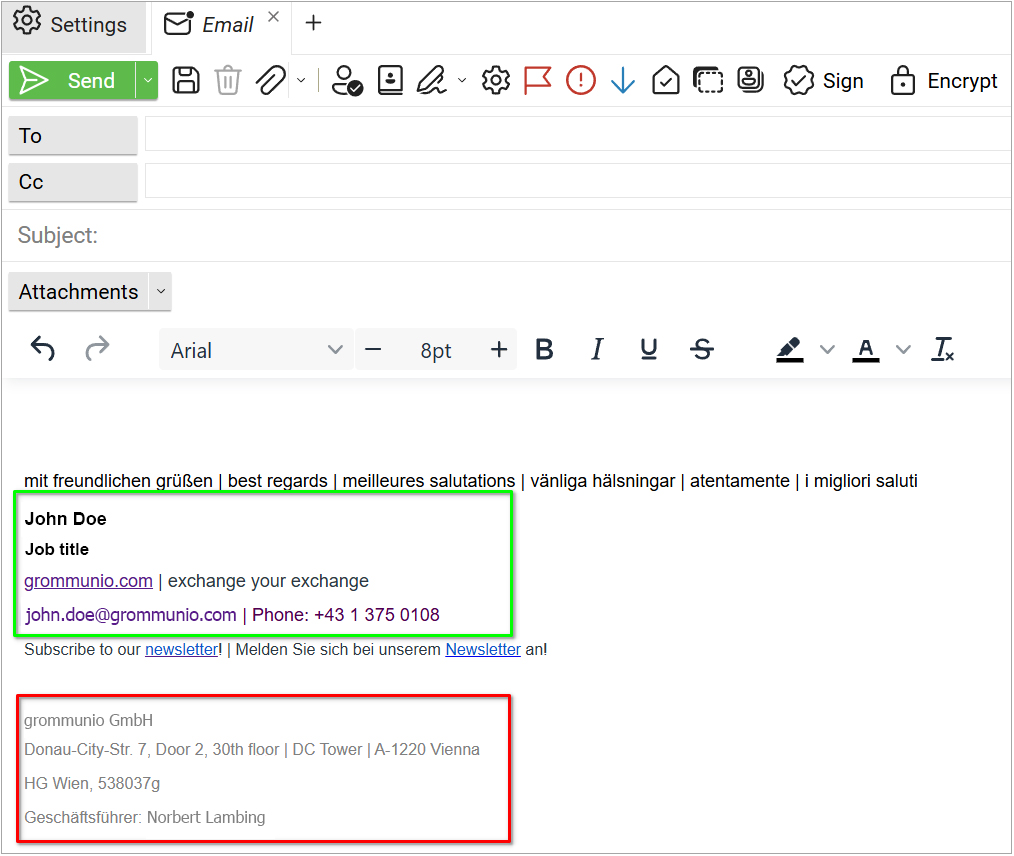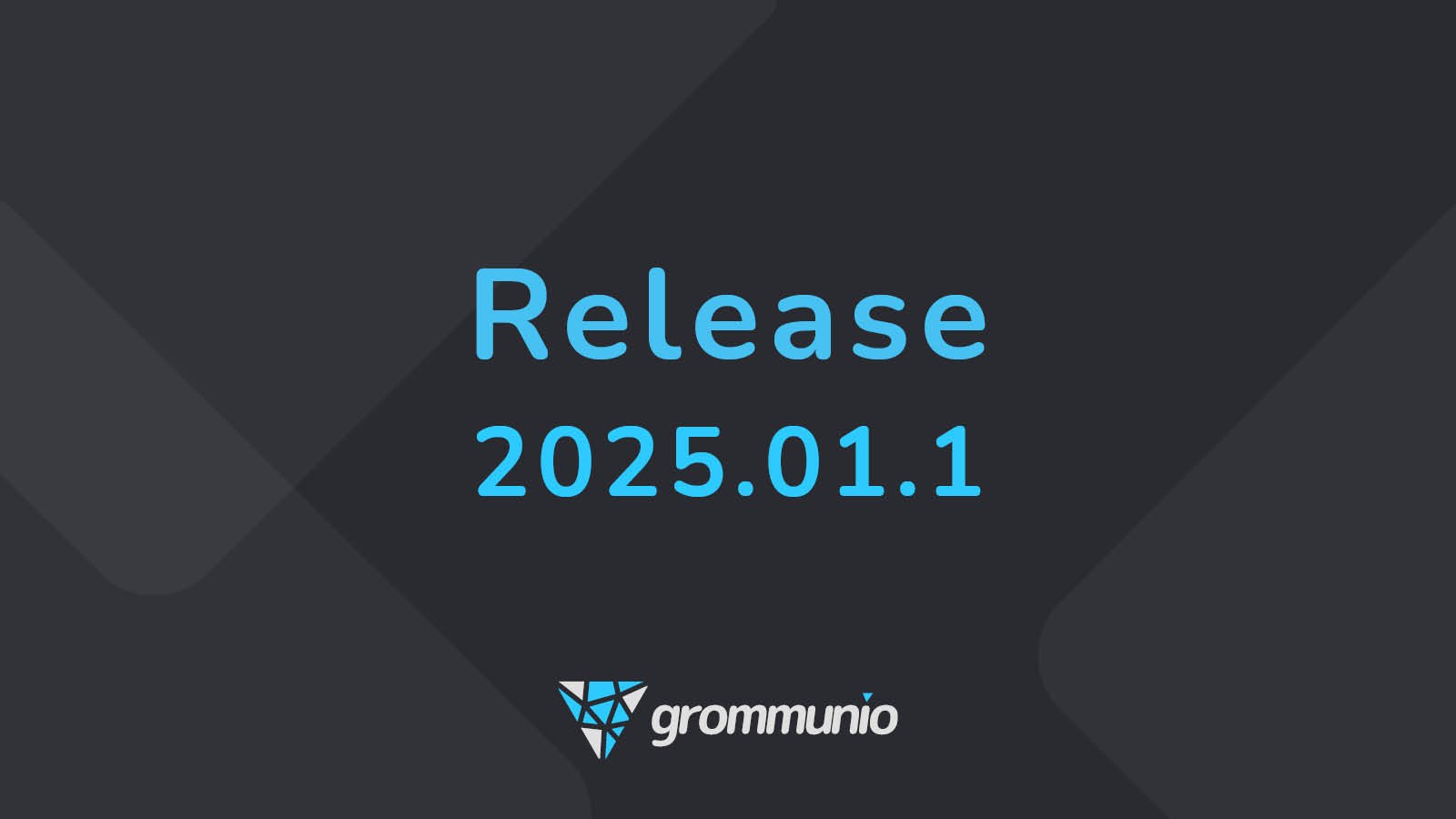A new operating system, significant speed increases thanks to massive parallelisation and lots of new software components and features: The new major release of grommunio has it all!
openSUSE 15.6
The standard operating system of the grommunio appliances is openSUSE – even though grommunio has always supported numerous systems. Anyone downloading the pre-installed images from the website will now also receive the brand new openSUSE Leap 15.6 as a platform. Like Leap, grommunio also benefits massively from the experience and software sources of SUSE Linux Enterprise, the leading European Linux server operating system, making it even more stable, up-to-date and versatile.
Parallelisation: Faster for everyone
The grommunio developers have made extensive improvements in terms of parallelisation, which improve the overall performance of the grommunio stack, especially in single-store scenarios (installations with only one data store in the backend), while the resource requirements for RAM, CPU or hard disk have been significantly reduced.
Lots of news: Keycloak 26.1, TinyMCE 7.6.1, PHP 8.2 and 8.3
But grommunio 2025.01.1 has also made some changes at the level of applications and administration tools. Keycloak, the leading open source identity and access management system, is included in the latest version 26.1, and there is also a big leap in the email editor: TinyMCE 7.6.1 now brings a lot of improvements compared to the previous version 4.9.11, it not only works faster, but also appears more modern and tidier at first glance.
Keycloak, on the other hand, has equipped single sign-on and identity management with extended security controls and simplified integration for large environments. Merging users and integrating large, heterogeneous directories is now much easier, also thanks to the new, extended functions of the administration console.
PHP 8.2 and 8.3
grommunio also remains active when it comes to PHP and now supports the newer versions 8.2 and 8.3. The updates improve performance and use memory more efficiently, but also help developers with type and error management as well as handling upgrades and compliance in the grommunio stack itself.
Standards and compliance
Compliance is – like support for common standards – a central topic at grommunio, which is also reflected in this release. Not only does grommunio 2025.01.1 take a further step towards the implementation of FedRAMP/NIST, FISMA and BSI specifications, but also S/MIME, Exchange Web Services, this release also extends the already very deep integration of Internet standards, for example in search functions, but also especially when creating mails.
Customization, centrally managed
The new release 2025.01.1 also offers admins, users and organizations a whole range of new features that help to ensure a uniform appearance with an individually optimized user experience and a tailored range of functions. Administrators can enable or disable web, sync (ActiveSync) and DAV services for individual users and thus precisely control resource access.
Signature templates
Signature templates, on the other hand, allow organizations to specify how and where the company name appears, for example, in customized, individual email signatures for the entire company, without any necessary user interaction.

Better calendars, better import
In addition to all the new features, there are countless corrections, patches and bug fixes, above all the improved support of appointments across the protocols used (CalDAV, EWS, MAPI) and clients, especially with regard to data transfer from older legacy systems such as Exchange, Communigate Pro, Kerio, Kopano or Zarafa.
Monthly releases and roadmap
Starting with the current version, grommunio is changing its development model. In future, the Viennese company will issue monthly “point releases”, starting with grommunio 2025.01.1, followed by the February version 2025.01.2.
In addition, there is one major release per year, which focuses on major new features and architectural improvements. For February, grommunio’s list includes further improvements to MIME headers in accordance with RFC 2184/2231, mailboxes with x400 addresses and undocumented MAPI attributes.
The February release will support RHEL9, Debian 12, and Ubuntu 24.04 and add group folders and modern authentication to grommunio-files. Later versions will include OAuth2 for Outlook, IMAP, and POP3. The developers are also working on HTML-based meeting requests and AI features for users.
As always, you can find all the details about the new features in our release notes.

